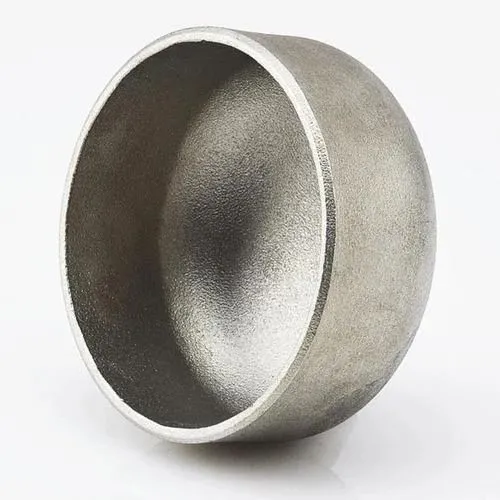-
Cangzhou Yulong Steel Co., Ltd.
-
Phone:
+86 13303177267 -
Email:
admin@ylsteelfittings.com
- English
- Arabic
- Italian
- Spanish
- Portuguese
- German
- kazakh
- Persian
- Greek
- French
- Russian
- Polish
- Thai
- Indonesian
- Vietnamese
- Zulu
- Korean
- Uzbek
- Hindi
- Serbian
- Malay
- Ukrainian
- Gujarati
- Haitian Creole
- hausa
- hawaiian
- Hebrew
- Miao
- Hungarian
- Icelandic
- igbo
- irish
- Japanese
- Javanese
- Kannada
- Khmer
- Rwandese
- Afrikaans
- Albanian
- Amharic
- Armenian
- Azerbaijani
- Basque
- Belarusian
- Bengali
- Bosnian
- Bulgarian
- Catalan
- Cebuano
- China
- China (Taiwan)
- Corsican
- Croatian
- Czech
- Danish
- Esperanto
- Estonian
- Finnish
- Frisian
- Galician
- Georgian
- Kurdish
- Kyrgyz
- Lao
- Latin
- Latvian
- Lithuanian
- Luxembourgish
- Macedonian
- Malgashi
- Malayalam
- Maltese
- Maori
- Marathi
- Mongolian
- Myanmar
- Nepali
- Norwegian
- Norwegian
- Occitan
- Pashto
- Dutch
- Punjabi
- Romanian
- Samoan
- Scottish Gaelic
- Sesotho
- Shona
- Sindhi
- Sinhala
- Slovak
- Slovenian
- Somali
- Sundanese
- Swahili
- Swedish
- Tagalog
- Tajik
- Tamil
- Tatar
- Telugu
- Turkish
- Turkmen
- Urdu
- Uighur
- Welsh
- Bantu
- Yiddish
- Yoruba

Sep . 10, 2024 10:21 Back to list
Professional Underground Pipe Welding Services
The Importance of Underground Pipe Welding
Underground pipe welding plays a crucial role in the construction and maintenance of various infrastructure systems, particularly for utilities like water, gas, and sewage. This specialized welding process ensures that underground pipelines remain secure, leak-free, and capable of withstanding environmental pressures. As urban development continues to expand, the significance of effective underground pipe welding becomes increasingly evident.
One of the primary challenges in underground pipe welding is the environment in which the work occurs. Welders often operate in confined spaces, under varying levels of soil cover, and sometimes under harsh weather conditions. These factors necessitate a high level of expertise and precision. The welding process itself typically involves techniques such as Shielded Metal Arc Welding (SMAW), Gas Tungsten Arc Welding (GTAW), or Submerged Arc Welding (SAW). Each technique has its own advantages and is selected based on the specific requirements of the project.
Safety is a paramount consideration in underground welding. Welders must adhere to stringent safety protocols to minimize hazards related to confined spaces, such as oxygen deficiency, toxic gases, and the potential for cave-ins. Proper ventilation, monitoring of atmospheric conditions, and the use of personal protective equipment (PPE) are essential steps to ensure a safe working environment. Furthermore, welders need to be trained in emergency response tactics, as their work often involves potential hazards.
underground pipe welding

Quality control is another critical aspect of underground pipe welding. The integrity of a welded pipeline directly impacts its performance and longevity. Any flaws in the welding process can lead to leaks, which can have disastrous environmental and economic consequences. Therefore, rigorous testing methods, including radiographic inspections and ultrasonic testing, are routinely employed to ensure the quality of welds. These measures help identify any deficiencies and ensure that pipelines meet industry standards and regulatory requirements.
Moreover, advancing technology is continually improving the efficiency and effectiveness of underground pipe welding. Innovations such as automated welding machines and robotics are becoming more common in the industry. These tools not only enhance the precision of welds but also reduce the time required for completing projects. Additionally, the use of advanced materials, such as high-strength steel and corrosion-resistant alloys, is becoming more prevalent, enabling longer-lasting underground pipelines that can endure challenging conditions.
In conclusion, underground pipe welding is an essential element of modern infrastructure development and maintenance. Its impact stretches across various sectors, providing the backbone for essential services. The challenges posed by the underground environment require skilled professionals who can navigate safety concerns, maintain quality standards, and adopt new technologies. As cities continue to grow and the demand for reliable piping systems increases, the importance of innovative and skilled underground pipe welding will only rise. Ensuring quality and safety in this field is not just a technical necessity; it is vital for the preservation of public health and environmental sustainability.
Latest news
-
ANSI 150P SS304 SO FLANGE
NewsFeb.14,2025
-
ASTM A333GR6 STEEL PIPE
NewsJan.20,2025
-
ANSI B16.5 WELDING NECK FLANGE
NewsJan.15,2026
-
ANSI B16.5 SLIP-ON FLANGE
NewsApr.19,2024
-
SABS 1123 FLANGE
NewsJan.15,2025
-
DIN86044 PLATE FLANGE
NewsApr.19,2024
-
DIN2527 BLIND FLANGE
NewsApr.12,2024
-
JIS B2311 Butt-Welding Fittings LR/SR 45°/90° /180°Seamless/Weld
NewsApr.23,2024











